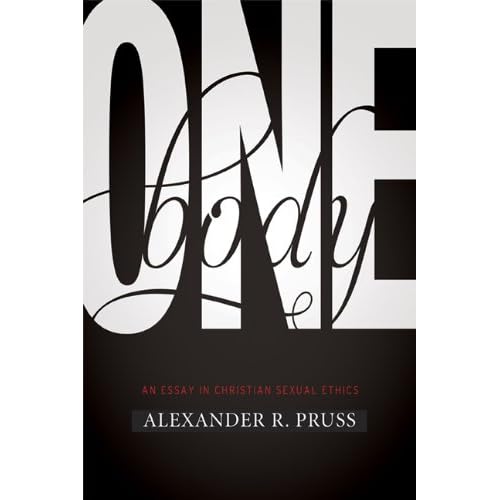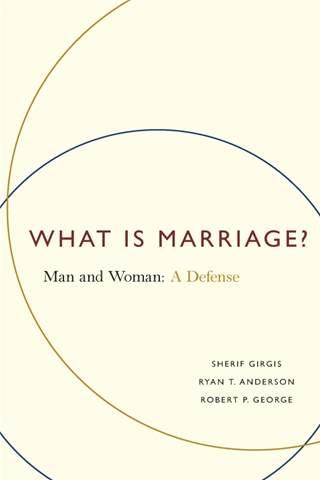There are two recently released books defending traditional Christian sexual morality (that the sexual act aims at 1) a "one-flesh" union and 2) procreation, the begetting and rearing of children) that might be of interest to my philosophically inclined readers.
The first is One Body: An Essay in Christian Sexual Ethics by the philosopher Alexander Pruss. Pruss takes a phenomenological approach (emphasizing the unitive aspects of the sexual act) similar to Pope John Paul II's Theology of the Body, with some "new" natural law theory thrown in for good measure. You can find a short summary of Pruss's argument here.
The second is What is Marriage? Man and Woman: A Defense by Robert P. George, Ryan T. Anderson, and Sherif Girgis. The three defend the traditional view of marriage as between a man and a woman. This book couldn't be more timely, as there is a growing trend in public opinion to redefine marriage to include same-sex partnerships, as one can see from the election battles in Minnesota and three other states just last month. Check out an earlier journal article version here.



Hey Eric! I've recently started reading Pruss' book, and I'm finding it to be quite good. I'm curious about your claim that Pruss has "new" natural law thrown into his book. Could you explain a bit more about why/how he is influenced by new natural law theory?
ReplyDeleteDavid,
DeleteI haven't had a chance to get "One Body," but judging from Pruss's article on Christian Sexual Ethics, he emphasizes a more phenomenological approach (unity) than a traditional natural law argument that uses AT metaphysics (like perverted faculty arguments). In retrospect, I might have a gone a bit too far in saying Pruss had influence from "new" natural law.
Looks like I'll have to get the book too.